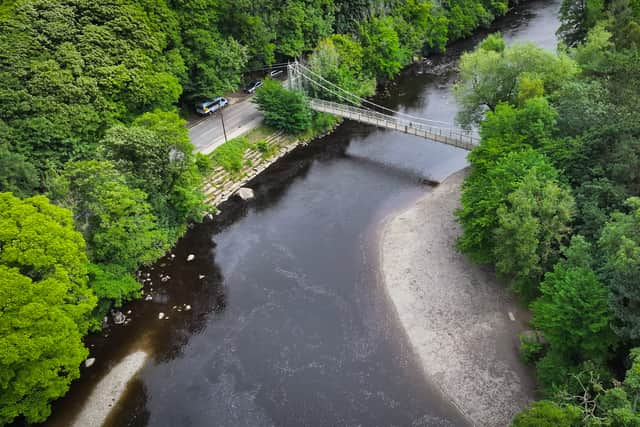Rivers in UK: Angling Trust finds over 80% of English rivers fail pollution standards over sewage and agricultural waste
and live on Freeview channel 276
Over 80 per cent of English rivers contain evidence of high pollution due to sewage and agricultural waste according to a study organised by the Angling Trust. Hundreds of anglers took part in the study and it is the largest citizen science water testing project to take place in the UK, according to the Guardian.
The study was organised after the trust was angered by the growing amount of sewage in UK waterways. Six hundred and forty-one anglers from 240 angling clubs now regularly monitor pollution in 190 rivers across 60 catchments. Between them they have taken more than 3,800 samples revealing the scale of pollution.
Advertisement
Hide AdAdvertisement
Hide AdThe fishers found that 83 per cent of rivers monitored failed phosphate standards for good ecological status in at least one test, and 44 per cent of site averages for phosphate failed the standard for good ecological status. Listed are the mapped catchments that were found to have the highest phosphate site averages:
the Medway
Swale
Ure
Nidd
Upper Ouse
Severn Middle Worcestershire
Loddon and tributaries
Wey and tributaries
Warwickshire Avon
Ribble
Hampshire Avon
Upper and Bedford Ouse


Jamie Cook, chief executive of the Angling Trust, told the Guardian that this first annual report “proves that across the country rivers are suffering from too much phosphate which is extremely damaging in freshwaters” and the Trust will now release the results of the monitoring annually.
Phosphates end up in our water as run-off from agricultural sites and as part of the organic waste generated by sewage and industrial waste. Phosphorus causes the largest problems in freshwater settings as it encourages the growth of algae and can lead to eutrophication, a process by which rivers and lakes are starved of oxygen. This kills invertebrate and fish life - and algal blooms can also be toxic.
The study comes after Surfers Against Sewage revealed that raw sewage was discharged into UK rivers and seas almost 400,000 times last year. In the campaign group’s report, released last November, it found that untreated sewage was released at the very least 399,864 times which is 1,091 times a day. However, the group said the figure is actually a “huge underestimation” of the “scale of the UK sewage scandal” as in Scotland a “miniscule 4% of sewage overflows have reporting requirements” and in Northern Ireland there is “virtually no monitoring at all”
Advertisement
Hide AdAdvertisement
Hide AdA spokesperson for the Department for Environment, Food and Rural Affairs told the Guardian that is is “taking comprehensive action to tackle water pollution in our rivers and seas – with more investment, stronger regulation and tougher enforcement” including “setting highly ambitious legally binding targets to reduce water pollution from agriculture and phosphorous pollution from treated wastewater.” The spokesperson added: “We are also taking swift action against those who break the rules, including increasing funding for [industry regulator] Ofwat, giving them new powers, and changing the law so that polluters face unlimited penalties and are rightfully held to account.”
Comment Guidelines
National World encourages reader discussion on our stories. User feedback, insights and back-and-forth exchanges add a rich layer of context to reporting. Please review our Community Guidelines before commenting.
